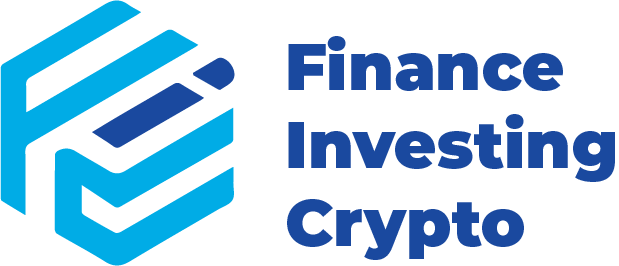“`html
Unlocking the Power of Online Banking: Benefits and Security Tips
Introduction
In today’s digital age, online banking has revolutionized the way individuals and businesses manage their finances. With just a few clicks, you can transfer funds, pay bills, monitor accounts, and even invest — all from the comfort of your home or on the go. This convenience and efficiency has made online banking an essential part of modern financial management.
Why is Online Banking Important?
As technology advances, traditional banking methods are gradually declining in favor of digital solutions. Online banking offers unparalleled convenience, saving time and resources while providing real-time access to your financial data. Moreover, it enhances financial inclusion by allowing those in remote areas to participate more fully in the financial system. Security measures have also improved, making online banking safer and more reliable than ever.
Benefits of Implementing Online Banking
- Convenience: Access your accounts anytime, anywhere, without visiting a branch.
- Time-Saving: Execute transactions immediately, avoiding long queues and waiting times.
- Cost Efficiency: Reduce the need for paper statements and manual processing costs.
- 24/7 Access & Real-Time Monitoring: Keep track of accounts and transactions anytime.
- Enhanced Financial Management: Use tools and alerts to budget effectively and prevent fraud.
Part 1: How to Maximize the Advantages of Online Banking
Setting Up Your Online Banking Account
Before you begin, choose a reputable bank with robust online services. Register through the bank’s website or mobile app, typically requiring identity verification. Once registered, set strong, unique passwords and enable multi-factor authentication (MFA) to protect your account.
Practical example
For instance, a small business owner can set up real-time notifications for transactions to spot any unauthorized activity immediately.
Step-by-step guide
- Visit your bank’s official website or download their app.
- Complete the registration process, submitting necessary identification.
- Activate security features (multi-factor authentication, biometrics).
- Link your accounts and set transaction limits for added security.
- Regularly update your login credentials and security settings.
Using Online Banking Features Effectively
Leverage features such as scheduled payments, budgeting tools, transaction alerts, and account linking to streamline your financial management. For example, automate bill payments to avoid late fees or utilize spend analysis tools to monitor expenses regularly.
Example: Streamlining Payments
A freelance professional can set up automated invoice payments to ensure timely settlements, improving cash flow and reducing manual effort.
Part 2: Ensuring Security in Online Banking
Analyzing Risk and Implementing Security Measures
Despite the benefits, online banking poses cybersecurity risks such as phishing, malware, and account hacking. Understanding these threats is crucial.
Key security tips
- Use strong, unique passwords for your online banking accounts.
- Enable multi-factor authentication (MFA) for added security.
- Regularly update your device’s software and security patches.
- Avoid clicking on suspicious links or attachments.
- Monitor your bank statements frequently for unauthorized activities.
- Use secure, encrypted networks, avoiding public Wi-Fi for banking transactions.
Practical advice
For example, a user encountering a suspicious email requesting banking credentials should avoid responding and immediately notify their bank.
Lời khuyên thực tế
Educate yourself about common scams and phishing attempts. Many banks offer security alerts and tutorials; make sure you’re enrolled and follow their recommendations.
Important note
Never share your login credentials or OTPs with anyone. Legitimate banks will never ask for sensitive information via email or phone.
Tools and Resources
- Password managers (e.g., LastPass, Dashlane) for creating and storing strong passwords.
- Bank’s official apps and websites for secure transactions.
- Security software like antivirus and anti-malware programs.
Additional Information: Frequently Asked Questions
Q: Is online banking safe?
A: When proper security measures are in place, online banking is generally safe. The key is to follow best practices and stay vigilant against threats.
Q: What should I do if I suspect fraud?
A: Contact your bank immediately, block or freeze your account, and report the incident. Most banks have dedicated fraud detection and response teams.
Q: Can I access online banking on multiple devices?
A: Yes, but ensure all devices are secured with updated antivirus software, and avoid sharing your login details.
Useful Resources
- Your bank’s security guidelines
- Cybersecurity awareness platforms
- Financial management apps
Summary and Next Steps
Online banking offers unparalleled convenience and efficiency, making it an indispensable tool for effective financial management today. However, safeguarding your account requires awareness and proactive security practices. By setting up your account properly, utilizing available features intelligently, and prioritizing security, you can enjoy the full benefits of online banking with peace of mind.
Recommendations
- Regularly review your bank statements.
- Keep your security software updated.
- Educate yourself on current scams.
- Explore additional financial tools to optimize your finances.
Call to Action
Interested in learning more about digital financial strategies? Read our related articles on crypto investment, financial planning, or virtual payments. Need personalized advice? Contact our financial experts today to optimize your online banking experience.
Empower your financial journey—embrace the future with safe and smart online banking!
“`








